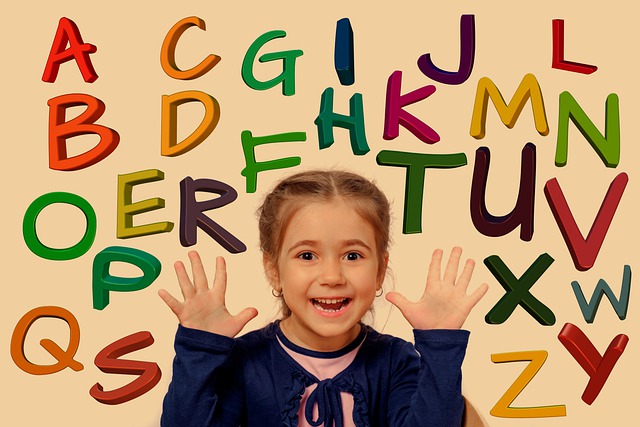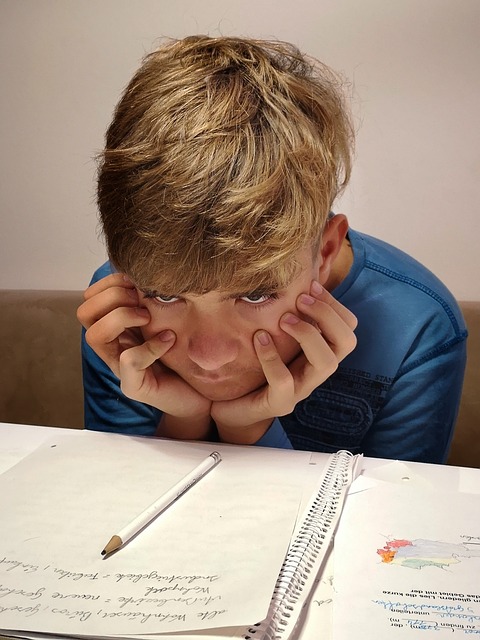In this post, we are going to cover a sensitive topic: how to help struggling readers at home.
I am actually going to ask you to reflect on a few questions you should ask yourself before putting the label ‘struggling reader’ to your child. This is because in the answer to these questions, you may find very important information about what you need to do with your child to facilitate his or her learning to read process.
Why so many children are classified ‘struggling readers’? What is really going?
Before I start, I just wanted to give you a bit of context about me and my story. However, if you are in a hurry and want to go straight to the questions, click here.
I am mum of 2 lovely daughters. The younger one is still a toddler, and my older daughter is 6 years old at the moment. In normal circumstances, she goes to school, but I have been homeschooling her for a good while now…
But even before homeschooling her, I decided to take a proactive role on her reading instruction, because I was not very happy or impressed with the system and the methodology used to teach her to read.
By the way, the system they were using at her school is just the standard – common approach, so I can’t really blame the school for this. It is just the way it is.

I am sure that (unless you are in England, where I believe they have introduced systematic synthetic phonics in their school system) this is going to sound familiar to you: A little a bit of phonics instruction, but in quite a disorganised manner. And, an over-reliance on lists of sight words and guess work. Every week, new lists of sight words! Then, test, and you get a new list of sight words!
Besides, children are encouraged to guess words by looking at pictures, for example. Getting children into guessing words is, in my opinion, a horrible habit.
Behind all of these strategies there is the assumption that children are just going to learn by themselves with this information, and enough exposure to books.
In my opinion, this is not a very effective way of teaching reading. I honestly think that children learn to read despite these methods, more than thanks to these methods.
I noticed an incredible difference in my daughter’s learning curve and her understanding of how language works when I took a proactive approach, researched about the topic, and started to apply phonemic awareness and explicit synthetic phonics principles in her reading instruction.

This is why I have been wondering why we have so many struggling readers, and if sometimes we classify children as struggling readers when, in reality, had they been offered a good/ solid decoding system for learning to read, they would have just got it.
In other words, if behind all of that struggle children have with reading, there are crucial lacks around the system of teaching reading to children.
Of course, if you suspect that you may be dealing with a processing disorder, you should definitely get this checked!
Struggling readers Checklist
Is your child being taught to read using the whole word or whole language approach?
If you are unsure about what this is, please check this post that explains in detail the differences between the whole word approach and the phonics approach.The whole word approach is still a very popular teaching method, but unfortunately it is not the best one for English.It may make sense for ideographic languages, such us Chinese, but it does not make much sense for alphabet-based languages, like English.It basically consists on memorising lists and lists of words, relying on tips and tricks to memorise these words, such us word shapes.
Unfortunately, this is a very inefficient way of learning to read. I could go on and go about this topic, but if you want more information about why the whole word approach is so problematic, I suggest you watch this video on our youtube channel.

Is your child encouraged to guess and predict what words could be when he or she reading?
The guess work the child is instructed to do could be based on: the first letter sound on a word, the pictures, guess words on very predictable books (like the ones used on whole word programs), predict words based on the context…

Asking children to read words based on these types of clues is one of the worst habits that you can get a child into, because guessing can very easily become one of their decoding strategies.
Let’s look at how this can happen:
The child can’t read the word ‘dog’, so he/she sees the picture of a dog and says ‘dog’. Then, the educator or the adult teaching the kid says: ‘Great! Good job! That was correct!”
Then, the same happens with the word ‘cat’, and the word ‘mat’, and the word ‘big’… Every single time, instead of reading the child just guessed by looking at pictures, but, because he/she guessed right, he/she gets congratulated for it!
What do you think that the child has learned? That guessing by looking at pictures is reading!

This guessing encouragement is extremely widespread, but it is also extremely dangerous.
In my opinion, it is ok to guess the MEANING of words based on the context, when you encounter advanced words that you probably don’t use on your day-to-day.
That is completely different to guessing words because you do not know how to read them or how to pronounce them.
What is the actual decoding system that your child is being offered, if any? Is it simply based on memory and repetition?
This question goes very much hand in hand with the 2 previous ones…We must not forget that when we are learning to read, we are learning to decode a system…In this case, we are learning to “crack” the code of the English language.
It is not normal to think that we can just memorise every single word. Are we really going to memorise all words that we encounter? Do we even have the capacity?Well, scientists in the visual memory area (not related to reading research, therefore unbiased) have indicated that we don’t have the cognitive capacity to remember 30 – 90,000 words for immediate retrieval.
This is the number of words in adults’ vocabulary.

Learning how the relationships between letter and sounds work is a much better way of learning to read. And this is a proper decoding system.
Is she/he being offered enough phonics instruction in an organised and systematic manner?
Or just random phonics instruction here and there? For phonics instruction to work, it needs to be strategically designed, and introduced in a way that knowledge builds upon he/she knows.This is especially relevant in the English language, as the spelling system has many irregularities and exceptions. Having said that, there are rules, patterns and tips and tricks to go around these irregularities…
But all of these things need to be explained at the right time, following a proper strategy.
If we introduce phonics without a system, phonics can also be unsuccessful.
And this is even more true for students at risk for reading difficulty.
Explicit phonics (that is another name Systematic Synthetic Phonics) is helpful in general for all students, but particularly for students at risk of reading difficulty.

What is your child’s level of Phonemic Awareness?
In short, Phonemic Awareness is the ability to hear, identify and manipulate the individual sounds in words, and to manipulate these sounds.For instance, a person with Phonemic Awareness is able to recognise that the individual sounds on the word mat are /m/ /a/ /t/, and that when we add or replace new sounds, we get new words. For instance, if we add the /s/ sound at the end of the word, we get the word ‘mats’; and when we replace the /m/ sound with the /k/ sound, we get the word ‘cat’. The ability of understanding how words are made up of sounds is crucial for learning to read. Phonemic Awareness is the number one predictor of how well children will do at reading instruction.
However, it is overlooked in so many instances!

By the way, don’t confuse Phonemic Awareness with Phonological Awareness.
If you want to know more about why differentiating these 2 concepts is so important, check this video!
How is your child being taught to sound out words? Are his/her teachers sounding out words correctly?
If you want to find out more about this topic, check this post about how to sound out words correctly.

- Does your child understand the sound / letter correspondence, but maybe he has problems with blending? It takes a lot of practice to master blending. Besides, some children just need more practice than other.The child (and, of course, the adult giving the instruction as well ) need to understand the principles of blending, the types of blending and practice, practice and practice!If you want to know more about this, again I would recommend the post about how to sound words properly: Sounding out words phonetically – How to Blend Sounds? AVOID this common mistake!Or, if you prefer, watch it on video!
- Does your child hear properly?
As you may have noticed, hearing the sounds properly is a key piece of the puzzle when learning to read. So, if you suspect your child has hearing problems, get him/her tested, as that could also be impacting his / her reading abilities.In the same way, some children have reading difficulties because they have undiscovered vision problems.
Has your child developed anxiety around reading books?
If a child has negative experiences around reading, it can be the case that he or she is too anxious to think properly when he or she is reading.
Negative experiences might be subtle, like an internal frustration because he/she feels really bad about not being able to figure things out.

So, watch out for this, and if you see signs of anxiety, try to calm her/him down, and really focus on making of reading a positive experience for your child.
Are you getting involved and supporting your child?
Are you reading with him/her every day? Letting him/her have a go, and then correcting him or her if necessary?One important point here: Offer your child explanations about his/her mistakes. If we are not given proper explanations about our mistakes, then we simply won’t learn from them.While it is true that sight words for instance can’t be explained phonetically (at least not the whole of the word can’t be explained phonetically – for instance, in the word ‘said’, we can explain the ‘s’ and the ‘d’, but not the ‘ai’), words in general follow rules and patterns that can be explained to your child.
If you find you can’t offer explanations as to why we read words as we read, I would encourage to research on the topic, as this can truly help your child.
Again, it is important that you carefully select books that are appropriate for his / her level, so he/she can actually learn from his/her mistakes.
This plays a huge part.
We learn from practice and from making mistakes, but only when we are given proper explanations to our mistakes.
Have you been making sure that the books that he/she is reading are appropriate for his / her level?
I kind of explained this on the previous point, but I wanted to stress it out again, because it is SO important.If the child is offered books that are too advanced for him or her to read, he/she might end up being overwhelmed.
Besides, the child won’t probably have the capacity of learning from his/her mistakes (as he/she won’t be able to understand the explanations you give him/her) and all of this may contribute to making of this reading experience, a negative one.
If you consider that the book is too advanced for your child, but, for whatever reason, you want your child to read that specific book (for instance, because you think he/she will really love the story), then you read it to him/her and maybe pick up some random words throughout the book that you think he/she will be able to read.
Who are you comparing your child against?
I know it is inevitable, but it is a very bad habit. Some people just need more practice than others! And, it may just be that your child is lacking one of the core skills that you need to build upon his/her reading success and needs support with it, and that’s it. For instance, your child could be lacking Phonemic Awareness.And once you sort that out, your child’s reading ability just explodes!

Hey there! I’m Laura – an author, YouTuber, blogger, and the creator of the “Learning Reading Hub” platform. I created this space to dive into the world of reading instruction and to shout from the rooftops about how vital it is to use the right methods for teaching reading. I’ve got a TEYL certification (Teaching English to Young Learners), plus a Journalism degree from the University of Navarra in Spain, along with a Master’s Degree in Communication.
I’ve always loved digging into research, jotting down my thoughts, connecting with people, and sharing what makes me tick. With a background in marketing, digital projects, and the education scene (especially language learning), I’m all about wearing different hats.
When my first kid needed to learn how to read, it opened my eyes to the challenges and complexities involved. This journey took me through a rollercoaster of self-teaching, eye-opening discoveries, and yeah, some letdowns too. There’s so much conflicting info out there, along with methods that just don’t cut it. And let’s face it, these issues are way too common.
Now, I’m all about channeling that passion (without sounding like a know-it-all!) and sharing my journey. My mission? Making it easier for those who are on the same path I once was.
My heart’s with my family and the amazing Learning Reading Hub project. I live with my husband and two little ones, raising them in a bi-lingual environment (English and Spanish).

